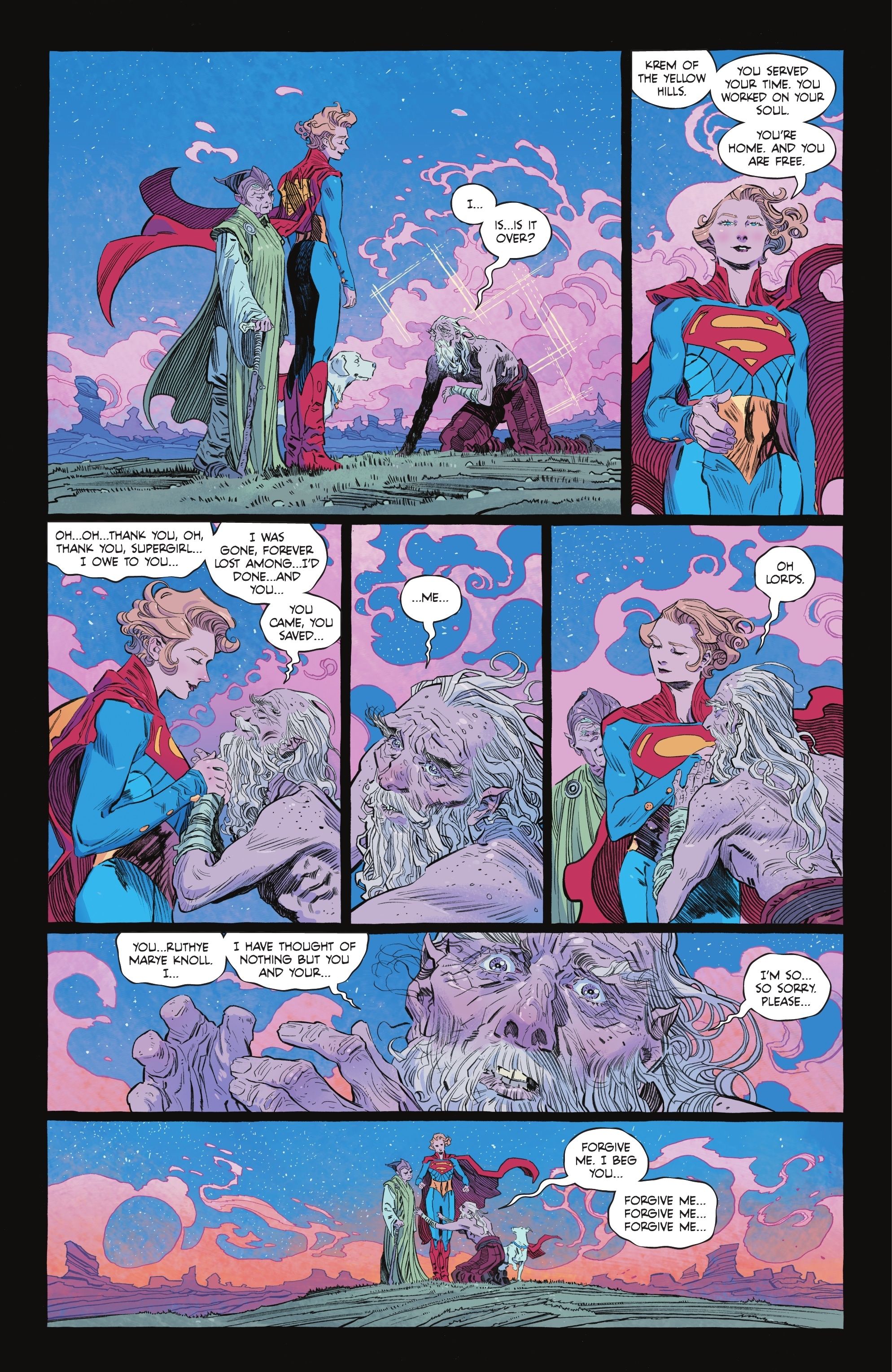Warning: contains spoilers for Supergirl: Woman of Tomorrow #8!
Although Superman’s Phantom Zone gets a bad rap, Supergirl has just proven it can do what Arkham Asylum cannot in DC Comics. In Supergirl: Woman of Tomorrow #8, Supergirl exiles the bloodthirsty Krem of the Yellow Hills to the Phantom Zone—and when he is released many years later, he is a changed man. The issue, the final of the eight-issue miniseries, is on sale now in print and digital.
Although exact depictions of the Phantom Zone have differed over the years, the basic concept remains the same: it is an extradimensional prison, discovered by Superman’s father Jor-El, that is home to some of the universe’s worst criminals, including General Zod. Those imprisoned in the Phantom Zone have consciousness and awareness but are physically unable to act on their thoughts. Recently, the pirate Krem seemingly killed Krypto and left Supergirl for dead under a red sun, sending the Maid of Steel on a galactic revenge quest, with the alien Ruthye, whose family was also killed by Krem, in tow. Now, the two have tracked their quarry to a distant world, where they are about to avenge themselves on the bloodthirsty pirate. The issue is written by Tom King, illustrated by Bilquis Evely, colored by Mattheus Lopes and lettered by Clayton Cowles.
Krem has been utterly defeated, reduced to groveling for his life and making empty threats. Neither Ruthye or Supergirl kill the pirate, deciding on another punishment. Hundreds of years later, Supergirl and Krypto appear to a now elderly Ruthye; readers learn Krem was sent to the Phantom Zone. Supergirl tells Ruthye that during the first hundred years of his exile, Krem screamed and cursed; during the second hundred he began to acknowledge the hurt he had caused others and finally spent the last hundred trying to become a truly better person. Sure enough, Krem emerges from the Phantom Zone, begging Ruthye profusely for forgiveness—however, she kills him.
Even though Ruthye rejected Krem’s apology, there is no denying his time in the Phantom Zone rehabilitated him, showing him the error of his ways. When Krem returned from his exile, he tearfully begged for forgiveness and Supergirl related that Krem felt penance for all the crimes he committed. Supergirl relayed the timeline of Krem’s journey of self, as he healed from past traumas and came to terms with his violent ways. Krem’s progression sounds much like a treatment plan an inmate at Arkham Asylum might undergo. However, the Phantom Zone has proven (at least in this instance) to be a more effective way of rehabilitating criminals; the number of inmates Arkham Asylum has truly helped is in the single digits and it can even be argued that a stint in the Asylum makes a person worse. Krem’s sincere change of heart, brought on by his time in the Phantom Zone, seems to run counter to recent portrayals of the Zone as dark and dangerous; it also wades into the debate of the ethics of the Phantom Zone, showing that it can help turn a person’s life around.
Superman and his family have used the Phantom Zone to imprison the universe’s worst criminals, setting off debates about its ethics. However, Supergirl has revealed that it is much more effective at helping people than Arkham Asylum.


